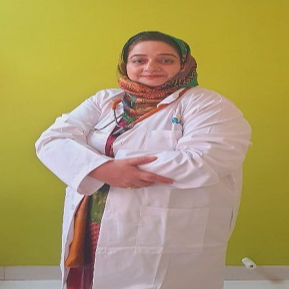Best Rheumatologists in bengaluru (3 doctors)
Book appointment for a trusted Rheumatologists in Bengaluru. Check doctor fees, available slots & locations. Apollo 24|7 features some of the top Rheumatologists in Bengaluru who have experience in treating conditions such as Rheumatoid arthritis, osteoporosis, gout and more. You can book online consultations & physical doctor appointments via Apollo 24|7. Compare Rheumatologists fees, experience and more, find a specialist doctor near you. Apollo hospitals has a renowned Rheumatology department in Bengaluru.

Dr Roopa Tekkatte
Rheumatologist
11 Years • MBBS, MRCP (UK), MRCP (Rheumatology), CCT (Rheumatology)
8 KM • Bengaluru
Apollo Hospitals Bannerghatta Road, Bengaluru

Dr Roopa Tekkatte
Rheumatologist
11 Years • MBBS, MRCP (UK), MRCP (Rheumatology), CCT (Rheumatology)
4 KM • Bengaluru
Apollo Hospitals Jayanagar, Bengaluru

Dr Beenish Nazir
Rheumatologist
12 Years • MBBS, DNB, Fellowship in Rheumatology (Guy’s and St Thomas’ UK)
3 KM • Bengaluru
Apollo Hospitals Sheshadripuram, Bengaluru
Rheumatologists in top localities of bengaluru
- •Best Rheumatologists in Rajbhavan, Bengaluru
- •Best Rheumatologists in Legislators Home, Bengaluru
- •Best Rheumatologists in Vasanthanagar, Bengaluru
- •Best Rheumatologists in Bangalore G.P.O., Bengaluru
- •Best Rheumatologists in Dr. Ambedkar Veedhi, Bengaluru
- •Best Rheumatologists in CMM Court Complex, Bengaluru
- •Best Rheumatologists in Mahatma Gandhi Road, Bengaluru
- •Best Rheumatologists in HighCourt, Bengaluru
- •Best Rheumatologists in Vidhana Soudha, Bengaluru
- •Best Rheumatologists in Bangalore City, Bengaluru
- •Best Rheumatologists in Bangalore Corporation Building, Bengaluru
- •Best Rheumatologists in Malleswaram, Bengaluru
- •Best Rheumatologists in Palace Guttahalli, Bengaluru
- •Best Rheumatologists in Swimming Pool Extn, Bengaluru
- •Best Rheumatologists in Vyalikaval Extn, Bengaluru
- •Best Rheumatologists in Basavanagudi H.O, Bengaluru
- •Best Rheumatologists in Gavipuram Extension, Bengaluru
- •Best Rheumatologists in Pampamahakavi Road, Bengaluru
- •Best Rheumatologists in Thyagarajnagar, Bengaluru
- •Best Rheumatologists in Mavalli, Bengaluru
Rheumatologists in nearby Cities
Related Treatments in Bengaluru
- •Treatment for Acute Diarrhea Treatment in Bengaluru
- •Treatment for Ankylosing Spondylitis in Bengaluru
- •Treatment for Adopted Child Syndrome Treatment in Bengaluru
- •Treatment for Ankylosing Spondylitis Physiotherapy in Bengaluru
- •Treatment for Ankylosing Spondylitis Treatment in Bengaluru
- •Treatment for Arthritis in Bengaluru
- •Treatment for Bad Breath Halitosis Treatment in Bengaluru
- •Treatment for Bleeding During Pregnancy in Bengaluru
- •Treatment for Blocked Blood Vessels in Bengaluru
- •Treatment for Brachydactyly in Bengaluru
- •Treatment for Broken Teeth in Bengaluru
- •Treatment for Cervical Spondylitis Treatment in Bengaluru
- •Treatment for Cervical Spondylosis in Bengaluru
- •Treatment for Chronic Kidney Disease Ckd in Bengaluru
- •Treatment for Dermatomyositis in Bengaluru
- •Treatment for Fibromyalgia in Bengaluru
- •Treatment for Gout in Bengaluru
- •Treatment for Inclusion Body Myositis in Bengaluru
- •Treatment for Juvenile fibromyalgia in Bengaluru
- •Treatment for Juvenile idiopathic arthritis in Bengaluru
FAQs
Who is a rheumatologist?
A rheumatologist is a doctor who specialises in diagnosing and treating diseases that affect the joints, muscles, and bones, particularly those related to autoimmune and inflammatory conditions. They manage conditions like arthritis, lupus, and other systemic diseases that involve joint and connective tissue inflammation.
What diseases does a rheumatologist treat?
Rheumatologists treat a wide range of conditions, including various types of arthritis (e.g., rheumatoid arthritis, osteoarthritis), autoimmune diseases (e.g., lupus, scleroderma), and musculoskeletal disorders. They also manage conditions like gout, ankylosing spondylitis, and fibromyalgia.
What is the difference between a rheumatologist and an orthopaedic?
Rheumatologists specialise in the medical treatment of autoimmune diseases and inflammatory conditions that affect joints and connective tissues. Orthopaedic doctors focus on the surgical and non-surgical treatment of bones, muscles, and joints, especially in the context of injuries and structural issues.
Does a rheumatologist treat bone cancer?
No, rheumatologists typically do not treat bone cancer. Bone cancer is usually managed by oncologists, including orthopaedic oncologists, who specialise in the diagnosis and treatment of bone cancers.
How does a rheumatologist detect autoimmune diseases?
Rheumatologists diagnose autoimmune diseases through a combination of patient history, physical examination, blood tests (such as ANA or rheumatoid factor), and imaging studies. These tests help identify the presence of inflammation or immune system abnormalities.
Which autoimmune diseases can a rheumatologist treat?
Rheumatologists treat a variety of autoimmune diseases, including rheumatoid arthritis, lupus, vasculitis, scleroderma, and psoriatic arthritis. They manage conditionswhere the immune system attacks healthy tissues, often causing inflammation in joints, muscles, and organs.where the immune system attacks healthy tissues, often causing inflammation in joints, muscles, and organs.
Is a rheumatologist also a specialist surgeon?
No, a rheumatologist is not a surgeon. Rheumatologists focus on diagnosing and managing diseases through medical treatment such as medications, while surgeons, including orthopaedic surgeons, perform surgical interventions.
What are the various arthritis that a rheumatologist can treat?
Rheumatologists treat many types of arthritis, including rheumatoid arthritis, osteoarthritis, psoriatic arthritis, gout, ankylosing spondylitis, and juvenile arthritis. These conditions involve inflammation in the joints, causing pain, stiffness, and sometimes deformities.
Does a rheumatologist treat children?
Yes, some rheumatologists specialise in pediatric rheumatology and treat children with inflammatory conditions, autoimmune diseases, and childhood arthritis. They manage conditions like juvenile idiopathic arthritis and lupus in children.
Which doctor is best for bones and joints?
An orthopaedic specialist is often the best doctor for issues related to bones and joints, particularly if surgery or structural problems are involved. However, for inflammatory or autoimmune-related joint and connective tissue issues, a rheumatologist is more appropriate.
. What is the most serious type of arthritis?
Rheumatoid arthritis is considered one of the most serious types of arthritis due to its autoimmune nature, where the immune system attacks the joints, leading to severe pain, joint destruction, and disability if not properly managed.
What blood tests do rheumatologists do?
Rheumatologists often perform blood tests to diagnose autoimmune diseases and inflammatory conditions, such as rheumatoid factor (RF), anti-nuclear antibody (ANA), anti-citrullinated protein antibodies (ACPA), and erythrocyte sedimentation rate (ESR). These tests help assess inflammation levels and detect specific autoantibodies related to autoimmune diseases.